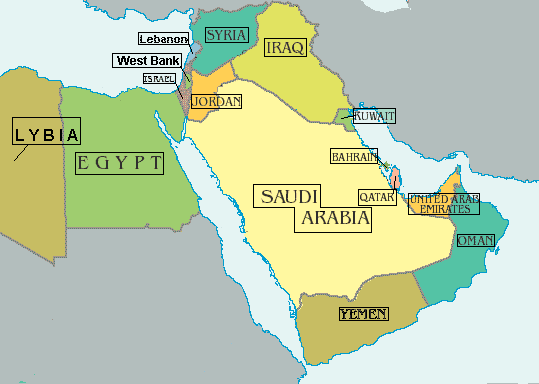








|
Middle East Common Market
Main Principles
The Middle East Common Market Agreement will provide for the inclusion of the legislation that covers the four basic principles of preferential areas of trade throughout the Member States:
- the movement of goods,
- services and
- capital
- the setting up of a system ensuring that competition is not distorted and that the rules thereon are equally respected; as well as
Common customs policy and external trade policy could be additionally determined.
In addition, the Agreement will cover co-operation in other important areas such as research and development, education, social policy, the environment, consumer protection, tourism and culture, collectively known as “flanking and horizontal” policies.
The Agreement will guarantee equal rights and obligations within the Internal Market for citizens and economic operators in the Middle East Common Market.
Aims and Prospects
The Middle East Common Market (hereinafter: the Union) is the second step in bringing peace, security and prosperity to the Middle East region, following the Israel-Palestine-Jordan Confederation. The ultimate goal of the Union is "an ever stronger economic ties between the countries of the Middle East"; the objective is to promote economic and social progress which is balanced and sustainable and assert the Middle Eastern identity on the international scene.
Fundamental Rights
Respect for the fundamental rights of all people, whether nationals or non-nationals, is an essential feature of any democracy. The Union and its Member states are therefore required to respect them. Actions may be brought before the Union courts to enforce compliance by the Middle Eastern institutions. The Union may impose suitable political and economic sanctions on Member states that seriously and systematically flout fundamental rights. A State that is applying to join the Union will not be admitted if it does not guarantee enjoyment of these rights.
The Union may take decisions specifically designed to combat discrimination based on sex, race or ethnic origin, religion or belief, disability, age or sexual orientation. This rule does not amount to a direct ban on discrimination but provides the Union with the possibility to act.
Respect for the status enjoyed in the Member states by churches, synagogues and mosques, religious associations, philosophical and non-confessional organizations must be guaranteed by the Union institutions.
The needs of persons with a disability must be taken into account in the arrangements for completing the single market.
Determination
The potential Member states must be determined to lay the foundations of an ever stronger economic ties between the countries of the Middle East, resolved to ensure the economic and social progress of their countries by common action to eliminate the barriers, which currently divide the region. The essential objective of their governments' efforts should be the constant improvement of the living and working conditions of their peoples, recognizing that the removal of existing obstacles calls for concerted action in order to guarantee steady expansion, balanced trade and fair competition. The governments should affirm their willingness to contribute, by means of a common commercial policy, to the progressive abolition of restrictions on international trade. The countries should cooperate in pooling their resources to preserve and strengthen peace and liberty, calling upon the other peoples of the Middle East who share their ideal to join in their efforts.
Economic Impact of Middle East Conflict Israeli defense budget in 2020 was around 21.7 billion U.S. dollars, slightly higher than that of Year 2019, which reached a record of 20.5 billion USD.
According to the study from Rand Corporation, finding a peaceful solution to the Israeli-Palestinian conflict would increase Israeli and Palestinian GDP by as much as 30%.
According to the study from Strategic Foresight Group, backed by governments or other agencies in Norway, Qatar, Switzerland and Turkey, twenty years of conflict has cost the Middle East $12 trillion, a study showed on Friday.
One other conclusion of that study is that individuals in most Middle East countries are half as rich as they would have been if peace had taken off in 1991. Incomes per head in Israel next year would be $44,241 with peace against a likely $23,304. In the West Bank and Gaza Strip they would be $2,427 instead of $1,220.
Middle East Interactive Map
On this page we would like to graphically represent the perspective of the Middle East
Common Market idea. Clicking on a country will result in opening a new window with
the information on that country (courtesy of CIA World
Factbook). In addition, below is a comprehensive comparative table of statistical data on each of the countries.

| |
Area (sq.km) |
Population |
|
Bahrain
|
620 |
718,306 |
|
Egypt
|
1,001,450 |
81,713,520 |
|
Iraq
|
437,072 |
28,221,180 |
| Kuwait
|
17,820 |
2,596,799 |
| Lebanon
|
10,452 |
3,971,941 |
| Lybia
|
1,759,540 |
6,173,579 |
| Oman
|
212,460 |
3,311,640 |
| Qatar
|
11,437 |
824,789 |
| Saudi Arabia
|
1,960,582 |
28,146,656 |
| Syria |
185,180 |
19,747,586 |
U.A.E.
|
82,880 |
4,621,399 |
Yemen
|
527,970 |
23,013,376 |
Israel
|
20,770 |
7,112,359 |
| West Bank & Gaza
|
21,130 |
3,907,883 |
Jordan
|
89,213 |
6,198,677 |
|